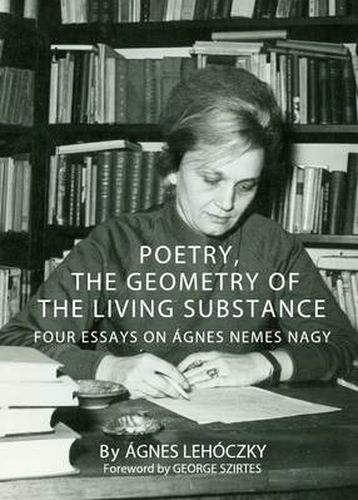Readings Newsletter
Become a Readings Member to make your shopping experience even easier.
Sign in or sign up for free!
You’re not far away from qualifying for FREE standard shipping within Australia
You’ve qualified for FREE standard shipping within Australia
The cart is loading…






Poetry, the Geometry of the Living Substance is the first serious and sustained study in English of one of the most important Hungarian writers of the 20th century, the modernist poet Agnes Nemes Nagy. The book captures the dual nature of poetry, as a discourse of the infinite and the abyssal, through close readings of her poetry and prose. These four essays draw parallels between Agnes Nemes Nagy and other thinkers and theorists, such as Rilke, Celan, Heidegger, Derrida, Beckett and Blanchot. The monograph explores the poetic paradigm changes of Nemes Nagy in her whole work, including her collections of poems, essays on poetics and other posthumous miscellaneous fragments. Drawing indirect parallels between the fields of poetics and epistemology, the central focus of the book is the parergonal relation between language and the external world, the psyche and the objective environment, trauma and memory within the poetic space.
$9.00 standard shipping within Australia
FREE standard shipping within Australia for orders over $100.00
Express & International shipping calculated at checkout
Poetry, the Geometry of the Living Substance is the first serious and sustained study in English of one of the most important Hungarian writers of the 20th century, the modernist poet Agnes Nemes Nagy. The book captures the dual nature of poetry, as a discourse of the infinite and the abyssal, through close readings of her poetry and prose. These four essays draw parallels between Agnes Nemes Nagy and other thinkers and theorists, such as Rilke, Celan, Heidegger, Derrida, Beckett and Blanchot. The monograph explores the poetic paradigm changes of Nemes Nagy in her whole work, including her collections of poems, essays on poetics and other posthumous miscellaneous fragments. Drawing indirect parallels between the fields of poetics and epistemology, the central focus of the book is the parergonal relation between language and the external world, the psyche and the objective environment, trauma and memory within the poetic space.